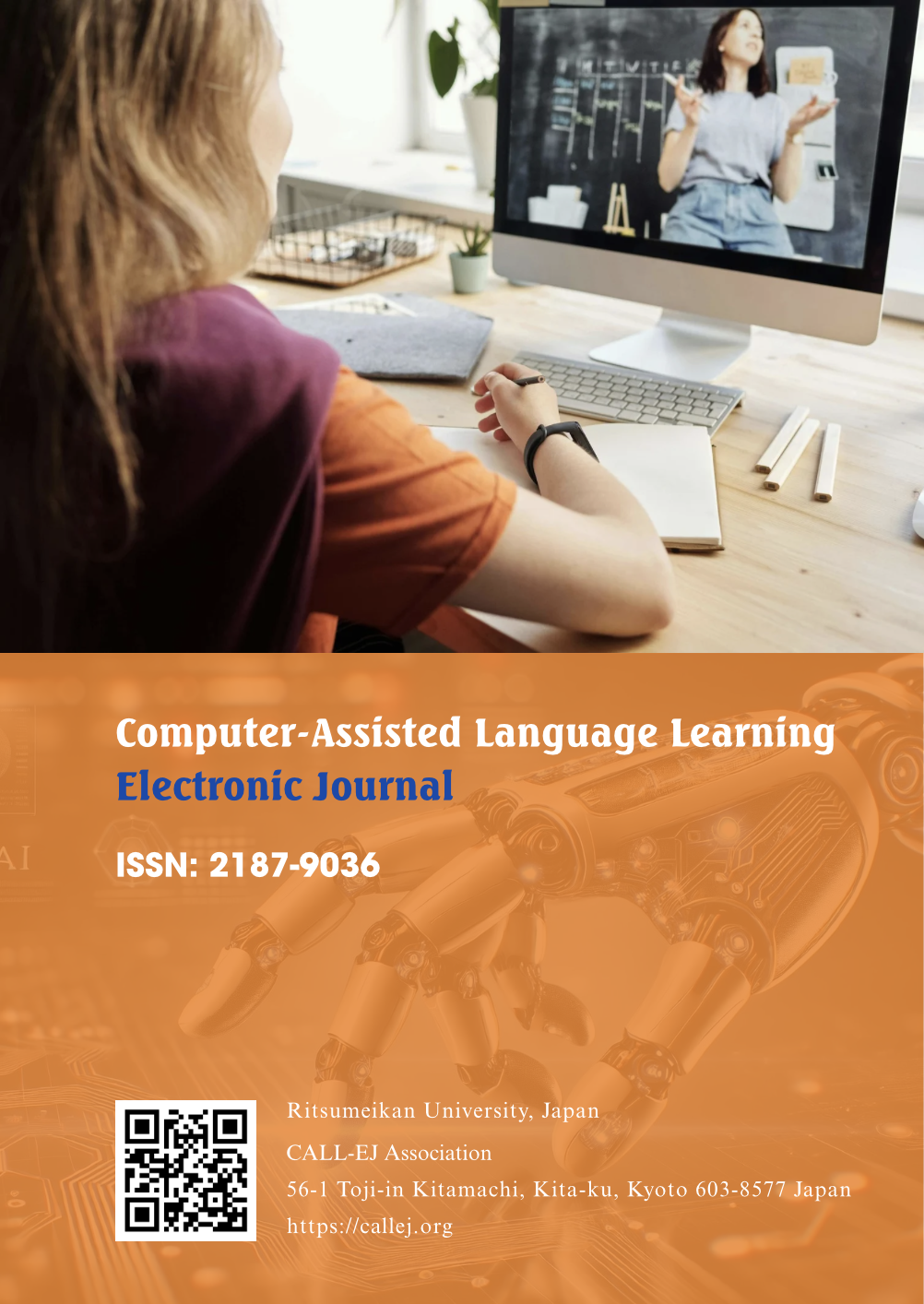Using the UTAUT2 model to determine the factors affecting students’ acceptance of blended learning for English writing
DOI:
https://doi.org/10.54855/callej.252632Keywords:
effort expectancy, performance expectancy, social influence, facilitating condition, self-efficacy, intention to use, use behaviorAbstract
The study aimed to determine the factors that affect students’ acceptance of blended learning for English writing. The authors employed Venkatesh et al.’s UTAUT2 and Bandura’s social cognitive learning theory to model the measurement scale, and the questionnaires were delivered to 152 students at a university in Vietnam. The findings show that students’ acceptance of BL was substantially influenced by their behavioral intention to use BL and slightly by their self-efficacy. Among the core constructs of UTAUT2, performance expectancy was the most influential on self-efficacy and behavioral intention to use BL. In addition, while effort expectancy moderately impacted students’ self-efficacy beliefs, facilitating conditions slightly influenced their behavioral intention to use BL. However, hypothesis testing concurrently rejected the causal relations between self-efficacy and performance expectancy, social influence, and facilitation condition. In another relation, social influence was not found to influence behavioral intention to use BL. Regarding the moderators, academic performance and ICT skills were found to positively affect the relation between behavioral intention to use BL and use behavior of BL. The systems information in the newly validated model offers some major implications for increasing students’ acceptance of BL for English writing.
References
Downloads
Published
Issue
Section
License
Copyright (c) 2025 Author and CALL-EJ

This work is licensed under a Creative Commons Attribution 4.0 International License.
Copyright of articles is retained by authors and CALL-EJ. As CALL-EJ is an open-access journal, articles are free to use, with proper attribution, in educational and other non-commercial settings. Sources must be acknowledged appropriately.

